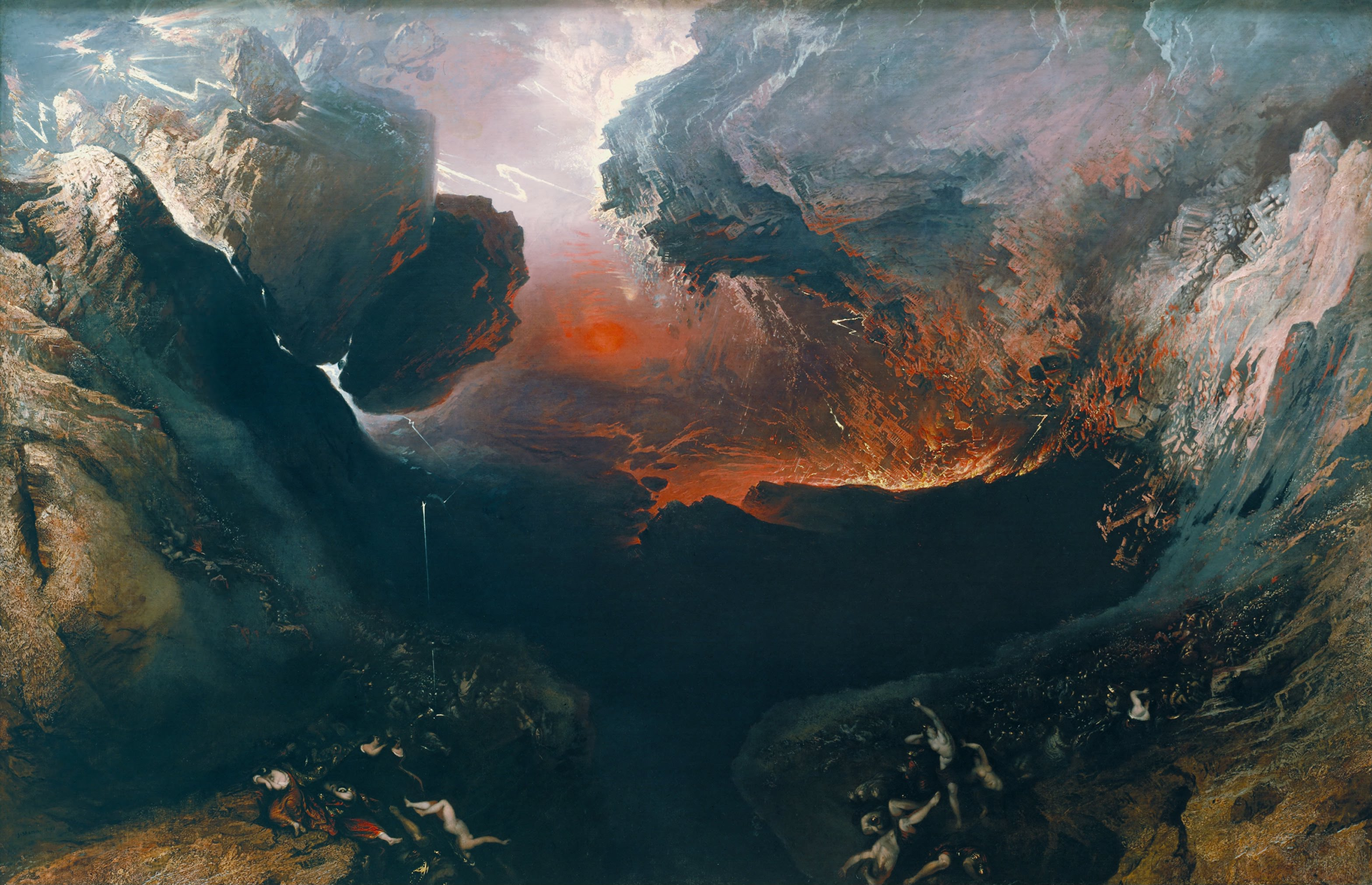|
Book Of Isaiah
The Book of Isaiah ( he, ספר ישעיהו, ) is the first of the Latter Prophets in the Hebrew Bible and the first of the Major Prophets in the Christian Old Testament. It is identified by a superscription as the words of the 8th-century BCE prophet Isaiah ben Amoz, but there is extensive evidence that much of it was composed during the Babylonian captivity and later. Johann Christoph Döderlein suggested in 1775 that the book contained the works of two prophets separated by more than a century, and Bernhard Duhm originated the view, held as a consensus through most of the 20th century, that the book comprises three separate collections of oracles: Proto-Isaiah ( chapters 1– 39), containing the words of the 8th-century BCE prophet Isaiah; Deutero-Isaiah ( chapters 40– 55), the work of an anonymous 6th-century BCE author writing during the Exile; and Trito-Isaiah ( chapters 56– 66), composed after the return from Exile. Isaiah 1– 33 promises judgment and restoration ... [...More Info...] [...Related Items...] OR: [Wikipedia] [Google] [Baidu] |
Nevi'im
Nevi'im (; he, נְבִיאִים ''Nəvīʾīm'', Tiberian: ''Năḇīʾīm,'' "Prophets", literally "spokespersons") is the second major division of the Hebrew Bible (the '' Tanakh''), lying between the Torah (instruction) and Ketuvim (writings). The Nevi'im are divided into two groups. The Former Prophets ( he, נביאים ראשונים ''Nevi'im Rishonim'') consists of the narrative books of Joshua, Judges, Samuel and Kings; while the Latter Prophets ( he, נביאים אחרונים ''Nevi'im Akharonim'') include the books of Isaiah, Jeremiah, Ezekiel, and the Twelve Minor Prophets. Synopsis The Jewish tradition counts a total of eight books in ''Nevi'im'' out of a total of 24 books in the entire Tanakh: there are four books of the Former Prophets, including Joshua and Judges; the collected '' Books of Samuel'' and '' Books of Kings'' are each counted as one book. Among the four books of the Latter Prophets, the major prophets (Isaiah, Jeremiah and Ezekiel) acco ... [...More Info...] [...Related Items...] OR: [Wikipedia] [Google] [Baidu] |
Messiah
In Abrahamic religions, a messiah or messias (; , ; , ; ) is a saviour or liberator of a group of people. The concepts of '' mashiach'', messianism, and of a Messianic Age originated in Judaism, and in the Hebrew Bible, in which a ''mashiach'' is a king or High Priest traditionally anointed with holy anointing oil. Χριστός, Greek for the Hebrew Messiah occurs 41 times in the LXX and the Hebrew Bible. ''Ha-mashiach'' (), often referred to as ' (), is to be a Jewish leader, physically descended from the paternal Davidic line through King David and King Solomon. He is thought to accomplish predetermined things in a future arrival, including the unification of the tribes of Israel, the gathering of all Jews to ''Eretz Israel'', the rebuilding of the Temple in Jerusalem, the ushering in of a Messianic Age of global universal peace, and the annunciation of the world to come. The Greek translation of Messiah is ''Khristós'' (), anglicized as ''Christ''. Christians ... [...More Info...] [...Related Items...] OR: [Wikipedia] [Google] [Baidu] |
Isaiah Scroll
The Isaiah Scroll, designated 1QIsaa and also known as the Great Isaiah Scroll, is one of the seven Dead Sea Scrolls that were first discovered by Bedouin shepherds in 1946 from Qumran Cave 1. The scroll is written in Hebrew and contains the entire Book of Isaiah from beginning to end, apart from a few small damaged portions.The Digital Dead Sea Scrolls: The Great Isaiah Scroll ''dss.collections.imj.org'' It is the oldest complete copy of the , being approximately 1000 years older than the oldest manuscripts known before the scrolls' di ... [...More Info...] [...Related Items...] OR: [Wikipedia] [Google] [Baidu] |
Servant Songs
The servant songs (also called the servant poems or the Songs of the Suffering Servant) are four songs in the Book of Isaiah in the Hebrew Bible, which include Isaiah 42:1– 4; Isaiah 49; ; and –. The songs are four poems written about a certain "servant of YHWH" (, ''‘eḇeḏ Yahweh''). Yahweh calls the servant to lead the nations, but the servant is horribly abused by them. In the end, he is rewarded. Some scholars regard Isaiah 61 as a fifth servant song, although the word "servant" (, ''‘eḇeḏ'') is not mentioned in the passage. This fifth song is largely disregarded by modern scholars; without it, all four fall within Deutero-Isaiah, the middle part of the book, the work of an anonymous 6th-century BCE author writing during the Babylonian Exile. The five songs were first identified by Bernhard Duhm in his 1892 commentary on Isaiah. Jewish interpretation The Self-Glorification Hymn from Dead Sea Scrolls asserts, from the first-person narrative, a messianic human ... [...More Info...] [...Related Items...] OR: [Wikipedia] [Google] [Baidu] |
Hezekiah
Hezekiah (; hbo, , Ḥīzqīyyahū), or Ezekias); grc, Ἐζεκίας 'Ezekías; la, Ezechias; also transliterated as or ; meaning "Yahweh, Yah shall strengthen" (born , sole ruler ), was the son of Ahaz and the 13th king of Kingdom of Judah, Judah according to the Hebrew Bible.Stephen L Harris, Harris, Stephen L., ''Understanding the Bible''. Palo Alto: Mayfield. 1985. "Glossary", pp. 367–432 In the biblical narrative, Hezekiah witnessed the destruction of the northern Kingdom of Israel (Samaria), Kingdom of Israel by Sargon II, Sargon's Assyrians in and was king of Judah during the Assyrian Siege of Jerusalem, siege of Jerusalem by Sennacherib in 701 BCE.Encyclopædia Britannica (2009)Hezekiah Encyclopædia Britannica Online, 12 November 2009. Hezekiah enacted sweeping religious reforms, including a strict mandate for the sole worship of Yahweh and a prohibition on venerating other deities within the First Temple, Temple of Jerusalem. He is considered a very righteous ... [...More Info...] [...Related Items...] OR: [Wikipedia] [Google] [Baidu] |
Day Of Yahweh
"The Day of the Lord" is a biblical term and theme used in both the Hebrew Bible ( ''Yom Yahweh'') and the New Testament (, ''hēmera Kyriou''), as in ''"The sun shall be turned into darkness, and the moon into blood, before the great and the terrible day of the come"'' (Joel , cited in Acts 2:20). In the Hebrew Bible, the meaning of the phrases refers to temporal events such as the invasion of a foreign army, the capture of a city and the suffering that befalls the inhabitants. This appears much in the second chapter of Isaiah which is read on the Sabbath of vision, immediately before the 10th of Av. The prophet Malachi foretells the return of Elijah immediately preceding the ''"great and terrible day of the "''. This prophecy is read in synagogues on the Great Sabbath immediately preceding Passover. In the New Testament, the "day of the Lord" may also refer to the writer's own times, or it may refer to predicted events in a later age of earth's history including the f ... [...More Info...] [...Related Items...] OR: [Wikipedia] [Google] [Baidu] |
30 Rockefeller
3 (three) is a number A number is a mathematical object used to count, measure, and label. The original examples are the natural numbers 1, 2, 3, 4, and so forth. Numbers can be represented in language with number words. More universally, individual number ..., numeral (linguistics), numeral and numerical digit, digit. It is the natural number following 2 and preceding 4, and is the smallest odd prime number and the only prime preceding a square number. It has religious or cultural significance in many societies. Evolution of the Arabic digit The use of three lines to denote the number 3 occurred in many writing systems, including some (like Roman and Chinese numerals) that are still in use. That was also the original representation of 3 in the Brahmic numerals, Brahmic (Indian) numerical notation, its earliest forms aligned vertically. However, during the Gupta Empire the sign was modified by the addition of a curve on each line. The Nāgarī script rotated t ... [...More Info...] [...Related Items...] OR: [Wikipedia] [Google] [Baidu] |
Great Isaiah Scroll
The Isaiah Scroll, designated 1QIsaa and also known as the Great Isaiah Scroll, is one of the seven Dead Sea Scrolls that were first discovered by Bedouin shepherds in 1946 from Qumran List of manuscripts from Qumran Cave 1, Cave 1. The scroll is written in Hebrew and contains the entire Book of Isaiah from beginning to end, apart from a few small damaged portions.The Digital Dead Sea Scrolls: The Great Isaiah Scroll ''dss.collections.imj.org'' It is the oldest complete copy of the Book of Isaiah, being approximately 1000 years older than the oldest Hebrew language, Hebrew manuscripts known before the scrolls' discovery. 1QIsaa is also notable in being the only scroll from the Qumran Caves to be preserved almost in its entirety. The scroll is written on 17 shee ... [...More Info...] [...Related Items...] OR: [Wikipedia] [Google] [Baidu] |
Voice In The Wilderness (other)
Voice in the Wilderness or a lone voice in the wilderness is an English idiom for someone who expresses an idea or opinion that is not popular or that the individual is the sole person expressing that particular opinion with the suggestion that the opinion is then ignored. It is from the King James Bible, , , "... voice of one crying in the wilderness ..." and "The voice of him that crieth in the wilderness ...". Voice in the Wilderness may refer to: * "A Voice in the Wilderness" (song), a song by Cliff Richard from the 1959 film ''Expresso Bongo'' * "A Voice in the Wilderness" (''Babylon 5''), a 1994 television episode * ''A Voice Crying in the Wilderness: Notes from a Secret Journal'', a 1989 book by Edward Abbey * '' Voices in the Wilderness'', 2003 album * ''Voices in the Wilderness'' (organization) The Latin of the Vulgate Version, "Vox clamantis in deserto" may refer to: * ''Vox Clamantis'', a 14th-century poem by John Gower about the Peasants' Rising * The motto of ... [...More Info...] [...Related Items...] OR: [Wikipedia] [Google] [Baidu] |
Swords To Ploughshares
Swords to ploughshares (or plowshares) is a concept in which military weapons or technologies are converted for peaceful civilian applications. The phrase originates from the Book of Isaiah chapter 2: The '' ploughshare'' ( ''’êṯ'', also translated '' coulter'') is often used to symbolize creative tools that benefit humankind, as opposed to destructive tools of war, symbolized by the ''sword'' ( ''ḥereḇ''), a similar sharp metal tool with an arguably opposite use. In addition to the original Biblical Messianic intent, the expression "beat swords into ploughshares" has been used by disparate social and political groups. An ongoing example as of 2013 is the dismantling of nuclear weapons and the use of their contents as fuel in civilian electric power stations, the Megatons to Megawatts Program. Nuclear fission development, originally accelerated for World War II weapons needs, has been applied to many civilian purposes since its use at Hiroshima and Nagasaki, includ ... [...More Info...] [...Related Items...] OR: [Wikipedia] [Google] [Baidu] |
Handel's Messiah
''Messiah'' (HWV 56) is an English-language oratorio composed in 1741 by George Frideric Handel. The text was compiled from the King James Bible and the Coverdale Psalter by Charles Jennens. It was first performed in Dublin on 13 April 1742 and received its London premiere nearly a year later. After an initially modest public reception, the oratorio gained in popularity, eventually becoming one of the best-known and most frequently performed choral works in Western music. Handel's reputation in England, where he had lived since 1712, had been established through his compositions of Italian opera. He turned to English oratorio in the 1730s in response to changes in public taste; ''Messiah'' was his sixth work in this genre. Although its structure resembles that of opera, it is not in dramatic form; there are no impersonations of characters and no direct speech. Instead, Jennens's text is an extended reflection on Jesus as the Messiah called Christ. The text begins in Part I ... [...More Info...] [...Related Items...] OR: [Wikipedia] [Google] [Baidu] |


.jpg)



